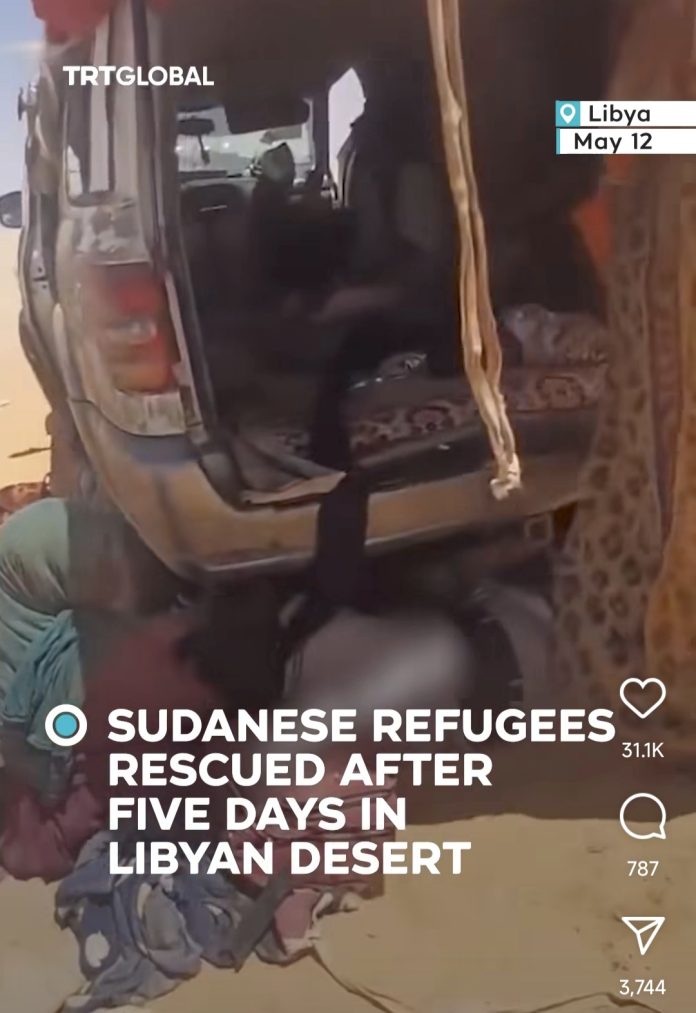Libyan border guards have rescued dozens of Sudanese refugees who were stranded in the desert near the Tunisia-Libya border for five days without access to food or water. The refugees, including women and children, were reportedly expelled from Tunisia amid escalating racial tensions and left in uninhabited areas near Al-Assah, approximately 150 kilometers west of Tripoli.
One of the survivors, 20-year-old Mukhtar Ahmed, recounted the harrowing experience: “My throat was parched, and in desperation, I found only urine… so I drank it to escape death.”, reported the Dabanga Radio TV Online. This desperate act underscores the extreme conditions faced by the refugees, who endured scorching temperatures exceeding 40°C (104°F).
Mohamad Abou Snenah, a member of the Libyan border patrol unit, stated that the number of migrants being rescued is increasing daily, with 50 to 70 individuals being saved at a time. The rescued refugees were visibly exhausted and dehydrated. Libyan authorities provided them with immediate medical attention, food, and temporary shelter.
The situation arose following racial unrest in Sfax, Tunisia’s second-largest city, where hundreds of sub-Saharan African migrants were forcibly taken to desert areas bordering Libya and Algeria. Many of the refugees reported being beaten by Tunisian soldiers and having their passports destroyed before being abandoned in the desert.
The International Organization for Migration (IOM) and other humanitarian agencies have been working alongside Libyan authorities to provide aid to the rescued individuals. However, the influx of refugees has placed significant strain on local resources, with over 100,000 Sudanese refugees having crossed into Libya since the conflict in Sudan began in April 2023.
Human rights organizations have condemned the actions of Tunisian authorities and called for immediate international intervention to address the humanitarian crisis. The United Nations High Commissioner for Refugees (UNHCR) has also urged for increased support to meet the growing needs of Sudanese refugees arriving in Libya.




